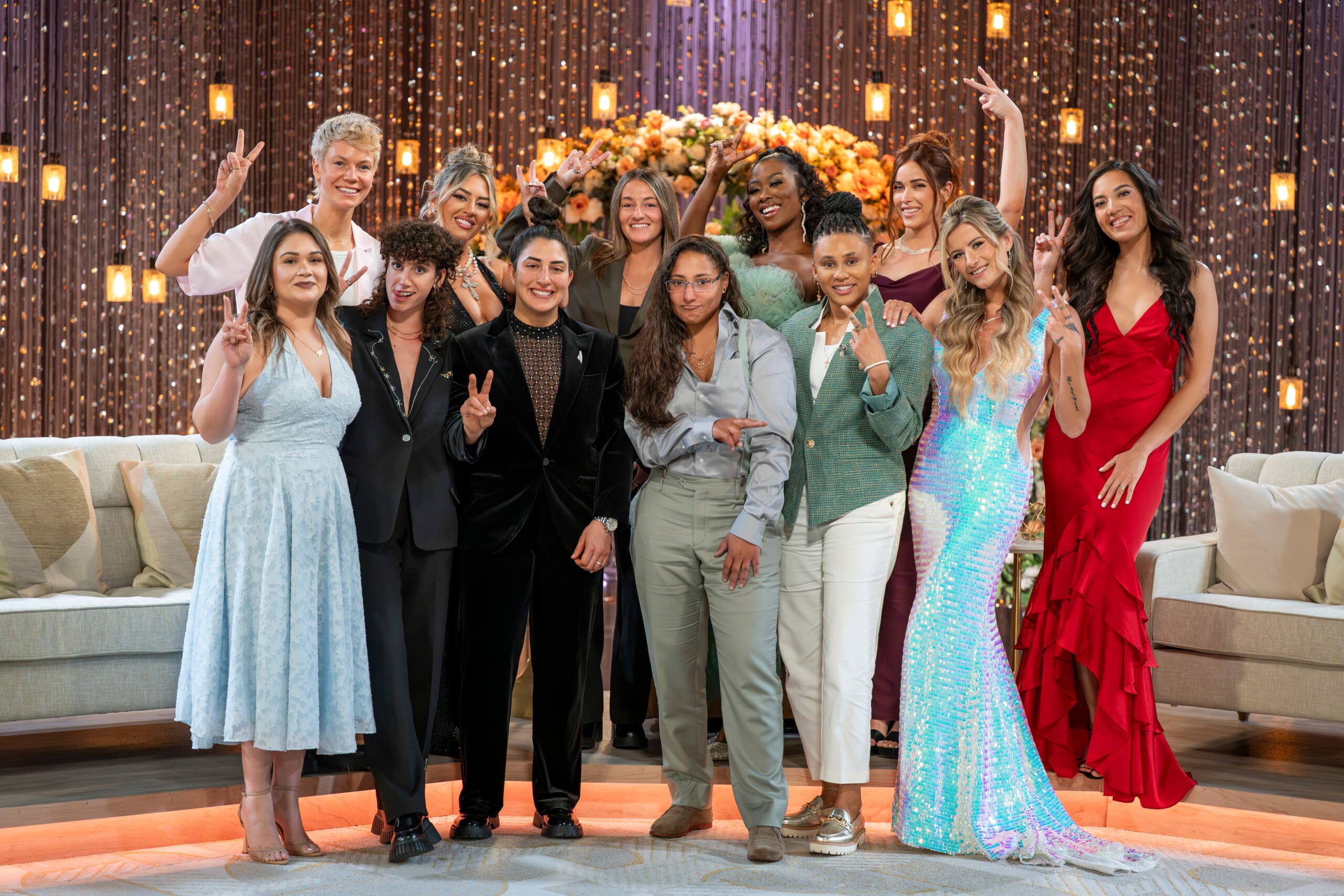
Well, we all knew it was going to be messy. The Ultimatum: Queer Love is back with just as much chaos as the first time.
The Ultimatum: Queer Love follows a few couples – one member of each being the Ultimatum Giver and the other being the Ultimatum Receiver. The giver wants to get married, and the receiver just isn’t ready yet (or might never want to). Then, the couples split up and spend their trial marriage with someone else who came with a different partner. Finally, they reunite as a couple to see if they can really work or if they have feelings for someone else. Yes, this premise sounds deeply troubling, and if you are thinking, “this is the last show I would ever want to go on,” you’re certainly not alone.
But alas, someone has to do it, in order to entertain the rest of us. And this year’s group is definitely chaotic, just as they were the first time around. There are always a few major instigators, one of which was decided early on; Mel, who tries to act like a player – gets even messier when she is with Dayna, the woman who she decides to spend her trial marriage with. The drama definitely does not stop there. We also see Magan, the partner Dayna originally came with, and her trial marriage partner confess that they love each other, before all of it spirals out of control.
There are many flaws when it comes to this series’ premise. First of all, when the couples split off and mingle with one another, the odds someone finds a person they want to connect with – and have that person choose them back – aren’t all that high. It ends up with people choosing partners they don’t feel romantically aligned with. This can birth some great friendships, but kind of messes with the premise of the show.
Second of all: the show is basically, in a way, a method for the couples to cheat. Sure, the trial marriage period with another person can teach you about yourself and what you are looking for. But most of them do use it as a way to spend time with another person, and often fall in love – or just hook up – in the process. Of course, this new person is going to seem more fun and exciting as their trial marriage is basically their honeymoon period, in comparison to the partner they came there with, who they’ve been with for years. There’s barely time to even have issues with your trial marriage partner. This is amazing reality TV, so you won’t see fans complain, but does it really do anything for the original couples?
Also, the trouble with many reality shows today is that so much happens between the finale and the reunion – in this case, it’s been a full year – and a lot of the drama is contained to group chats and TikToks. The audience kind of has to catch up and fill in the blanks, but it’s clear that whatever happened after the show, and whatever cracks are still growing, it’s not going to be tidily swept under the rug. There are too many problems for them to adequately address in the measly reunion, and you’ll be upset to know that they barely scratch the surface of some of these – for example, the matching tattoos, sex playlists, accidental (?) “I love yous,” and much more.
But still, let’s take a look at the facts: The Ultimatum: Queer Love works. It’s popular, and it’s messy formula is pretty entertaining. As hard as it is to watch some of the couples crash and burn, seeing representation for the LGBTQ+ community in reality TV is much-needed, just as it is in every other genre. The show brings queer, specifically WLW and lesbian, communities together across social media platforms.
At the end of the day, it feels good to unite by talking about who is going to end up with who, reunion receipts, of course, the Brussels sprouts.

